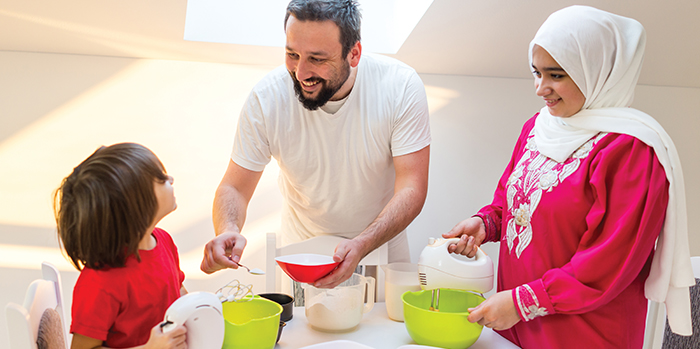
Ramadan is just round the corner. This is the time, when Muslims abstain from food and water and spend a considerable time in prayers and reciting the Holy Quran.
Since the focus is not food but reverence, one must plan cooking for Iftar and Suhoor in such a way, that minimal time is spent in the kitchen. This is attainable if you plan well in advance.
Begin by stocking your pantry with the necessary food items that are consumed by your family in general. Clean your fridge well and get rid of all the unnecessary items.
Oats, wheat flake cereal, wheat flour, honey, tea, coffee, vermicelli, rice, whole-wheat pasta, etc., should not be left for the last minute to be purchased. Sit down and make a complete Ramadan shopping list and act on it before Ramadan commences.
Shopping during fasting hours can sap your energy and can be a very tiring exercise. More so, when you shop on an empty stomach, it is possible that you may pick items that you don’t need at all.
This is the time when you use your freezer to the maximum. Meat and chicken can be marinated in spices and ginger garlic paste and kept frozen. This comes handy in making curries, biryani or grills. Boiled and shredded chicken should be frozen as it is useful for making wraps, sandwiches or rolls.
Chicken stock and vegetable stock should be made in advance. Freeze it for Ramadan as they aid in making delicious soups, stews, and pulaos in a jiffy. Stock also lends a wonderful flavour to your pasta when it’s boiled in the same.
Freeze herbs such as mint and parsley in ice cube trays as they come handy in making delightful dips.
Tomato puree, brown onion paste, and ginger-garlic paste must be made in bulk and refrigerated as these ease the process of making stews and gravies.
As a tip, roast vegetables such as zucchini, eggplant, and bell peppers in advance and use them as a base for some comforting soups or just as a side dish with grilled chicken or steak or fish. Tomato too can be roasted in advance and refrigerated as it is useful in making creamy tomato soup.
Pita bread (whole wheat) should be a staple in your pantry as it can be stuffed with veggies, chicken or used as it is to eat with soup or curries.
Kebab mixtures of chicken mince or lamb can be frozen too in advance and used for Iftar or dinner.
The essence of Ramadan is to eat little but healthy. Overnight oats can be made in the evening for Suhoor and this keeps you full for a long time.
Focus on eating salads and fruits and engage your family in chopping and cutting the same for you.
A very important tip is to make use of leftovers, such as rice can be transformed into a delectable fried rice or can be used to make cutlets. Similarly, leftover chapatti or khubz can be eaten the next day as a quesadilla.
Ramadan should be time for self-rejuvenation and prayers. With these small preparations, you can have a purposeful Ramadan without spending more time in the kitchen.
—[email protected]